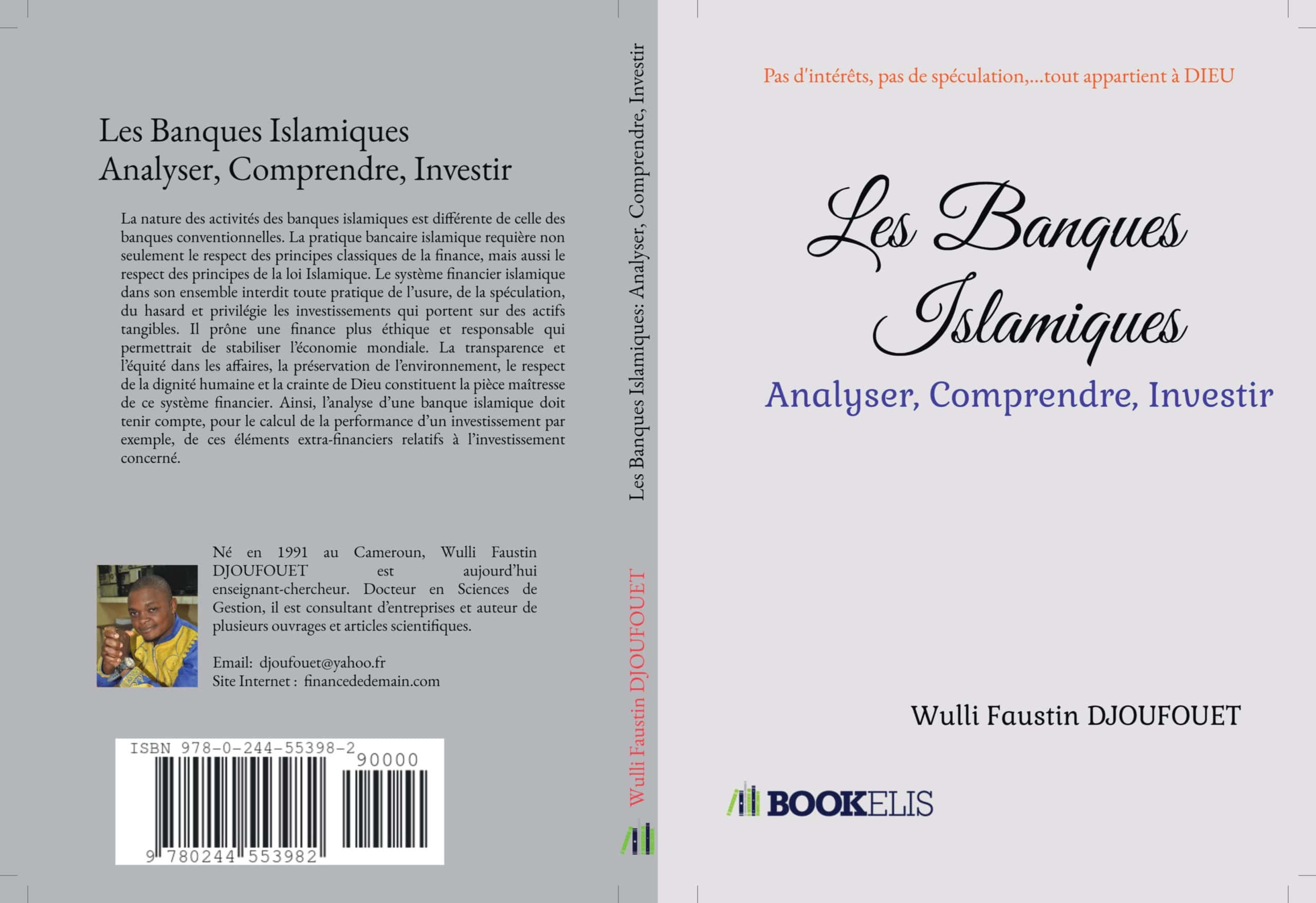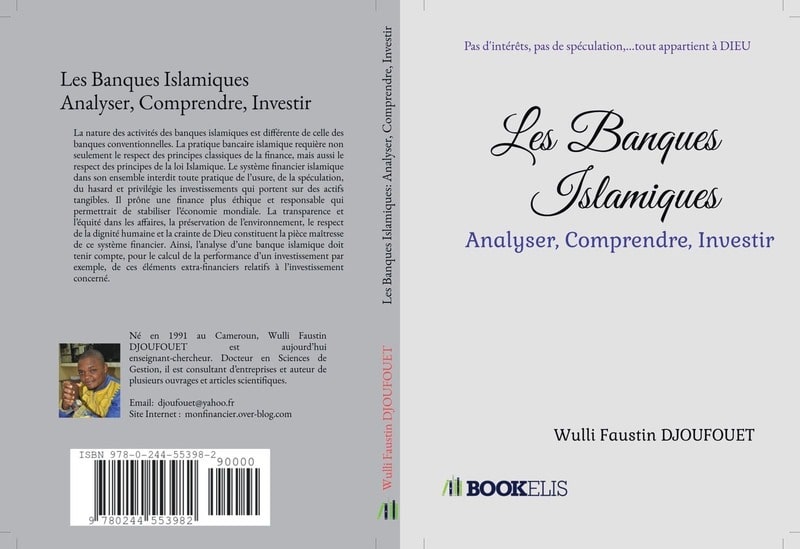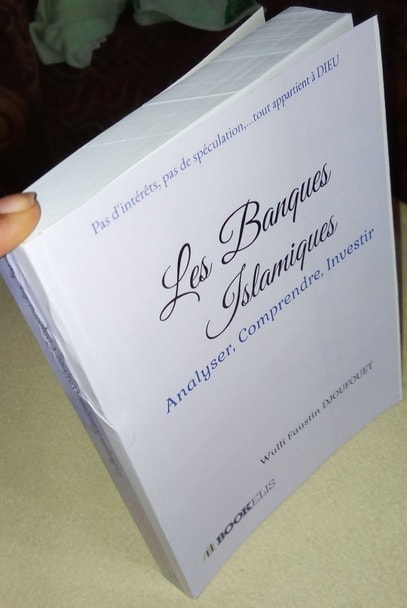Why analyze and understand an Islamic bank?

With the dematerialization of markets, financial information is now broadcast globally and in real time. This increases the level of speculation which in turn leads to very high volatility in the markets and exposes the banks. So, Finance de Demain, proposes to present to you the reasons why it is necessary to analyze and understand Islamic banking in order to better invest.
But to start, here are some Advice and strategy to create and develop which will allow you to develop your company or your business very easily.
???? Why Islamic finance?
The financial crisis of 2008, whose cause was speculation, made it possible to understand that the global financial system has become very opaque and skilful. Whatever regulatory mechanisms will be imposed on it in order to avoid possible crises, he will invent ways to circumvent them.

Get 200% Bonus after your first deposit. Use this promo code: argent2035
Nevertheless, the so-called Islamic banks have miraculously survived this crisis. This resilience could be explained by the fact that, theoretically, they do not practice interest and don't speculate.
It must first of all be said that the financialization of the economy constitutes one of the direct consequences of financial globalization. This globalization has brought a profound change in the philosophy and practice of corporate finance.
This financial globalization, characterized by the permanent quest for profit, obviously involves the practice of interest rates, speculation and securitization which remain the main causes of the 2008 financial crisis.
Thus, we now need a financial system that put people at the center of the economy and no longer the one who uses Man as a tool in the service of the economy.
In other words, the world needs a more ethical and socially responsible financial system. able to reduce injustices and inequalities in finance.
Islamic finance, if only on a theoretical level, fulfills all these conditions. She is a "responsible" finance since it is based on strict respect for the principles of Islamic law.
It presents itself as a branch of Islamic economics, aiming to establish an economic order in conformity with Islam. In 2008, the Islamic Financial System (IFS) stood out from its conventional equivalent by resisting the crisis.
This is what attracted the attention of specialists and researchers who wondered about the reasons for his immunity. In reality, the SFI seeks to reconsider Man as a beneficiary and no longer as a "victim" of finance.
It is for this reason that respect for the principles of social justice, fairness and transparency in business is the main value retained and defended by this financial system.
???? Islamic finance: what is the difference compared to conventional finance?
Islamic finance also differs from its equivalent by its particular vision of capital and labor. In fact, the economic and financial practices in progress during the time of the Prophet Muhammad serve him in particular as a base.
In fact, Islamic finance is characterized by the prohibition of interest and the social responsibility of investments.
While conventional banks derive most of their income in practice from interest, that of BIs is based on respect for the principle of sharing profits and losses on financing contracts established between the bank and its partners.
In addition, there are areas of investment prohibited by Sharia, i.e. Haram (as opposed to halal).
For example, games of chance, activities related to alcohol, pig farming, weapons or the film industry, etc.
To make sure that investments are halal, there is a supervisory commission within the banks. This investment supervision commission takes place in principle in two (02) ways.
The first way is individual in the sense that every Muslim is supposed not to invest his funds in incompatible activities with his religion. The second is institutional or organizational.
Banks and Islamic investment funds are composed, in addition to a board of directors and a general assembly, of a Sharia supervision or ethics committee (the Sharia Board) whose members are independent.
Thus, holdings in companies operating in illegal areas incur disapproval of these committees.
???? Why analyze Islamic banks?
Islamic finance is a real opportunity to seize for a better stabilization of the global financial system. However, some discordant voices see it rather as a " deception" disguised in the name of Islam.
Thus, the current concern is that of knowledge. Is Islamic finance an Islamization of means or an Islamization of ends?
Some factual elements make it possible to question more about this financial system.
✔️ First, ostensibly Islamic-in-laws countries like Saudi Arabia seem more integrated into the neoliberal system based on speculation and drowned in interest rate transactions.
While it was believed to end the financial crisis in late 2008, the Dubai World Bank crisis will arise.
✔️ Secondly, Islamic banking operations must conform to the principles of Islamic law.
Failure to comply with these principles is likely to tarnish the image of the entire industry. However, banks do not always respect these religious principles in practice.

Get 200% Bonus after your first deposit. Use this official Promo code: argent2035
✔️ Thirdly, the Islamic financial system is still experiencing enormous difficulties related to its regulation.
BIs, for reasons of comparability of financial statements, always use IFRS accounting standards. However, these standards are not adapted to them if we stick to the religious aspects of their banking transactions.
✔️ Fourth, Islamic banking not only faces specific constraints and risks, beyond traditional banking risks, but also raises deeper questions about its condemnation of the notion of interest which can limit its potential development.
To address this shortcoming, they offer more expensive products compared to those offered by CBs.
✔️ Fifth, the nature of Islamic banks' financial intermediation makes them more prone to agency problems than their conventional counterparts.
???? Why a book on the analysis of Islamic banks?
Our desire to write a book on Islamic banks lies in the particular nature of their activities. They require not only respect for the classical principles of finance, but also respect for the principles of Islam.
In fact, the SFI advocates a more ethical and responsible finance that would stabilize the global economy.
Transparency and fairness in business, preservation of the environment, respect for human dignity and fear of God, constitute the centerpiece of this financial system. It is on this basis that this book differs from those that exist on banks.
???? For whom is this book written?
This book is intended for a wider audience. Anyone interested in Islamic finance will find in this work elements of responses to concerns about the operation and mode of governance of Islamic banking companies, the financial products they offer and the particularities of their financial statements compared to those of their conventional equivalents.
For a better understanding of this book, we have tried to put ourselves in the place of someone who is approaching Islamic finance for the first time.
For this, our objective has been to highlight the elements that students or professionals find or should find interesting in the study or practice of Islamic finance.
Click here to buy it

This book is organized into seven (07) chapters.
✔️ Chapter 1 presents the reasons for choosing the theme. Before presenting these reasons, we present the general information on the financial analysis of banks.
✔️ Chapter 2 presents the Islamic finance industry as a whole. It presents the SFI from its genesis to its current state of affairs, including its operating principles.
✔️ Chapter 3 presents the functioning of Islamic banks. Here, we present the types of risks and risk management techniques that Islamic banks face.
✔️ Chapter 4 presents the governance of Islamic banking companies. It opposes the governance of conventional banking companies to that of Islamic banks.
✔️ Chapter 5 presents the accounting regulations of Islamic banking. Here, we present the standards and techniques of accounting records that BIs use in their daily accounting practices.
✔️ Chapter 6 presents the various financial and non-financial products known as halal offered by Islamic banks.
In addition, it presents the different types of contracts (financing contract and participation contract in particular) offered by these banks as well as their limits in terms of respect for religious principles.
✔️ Chapter 7 finally presents the particularity of the financial statements of Islamic banks compared to those of their conventional equivalents.
However, if you want to take control of your personal finances in six months, I highly recommend this guide.
It's your turn
Leave your opinions in Comments





















Leave comments